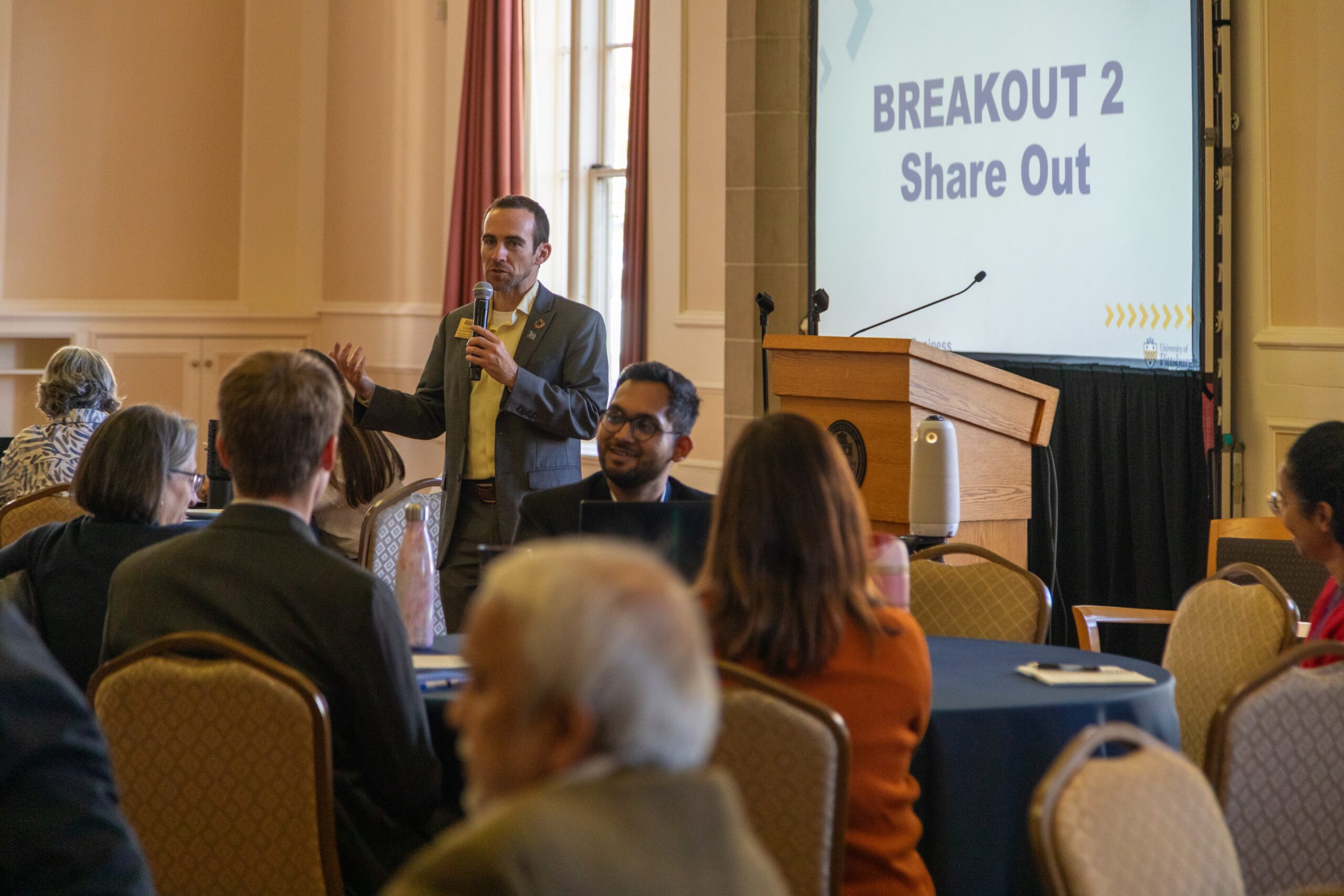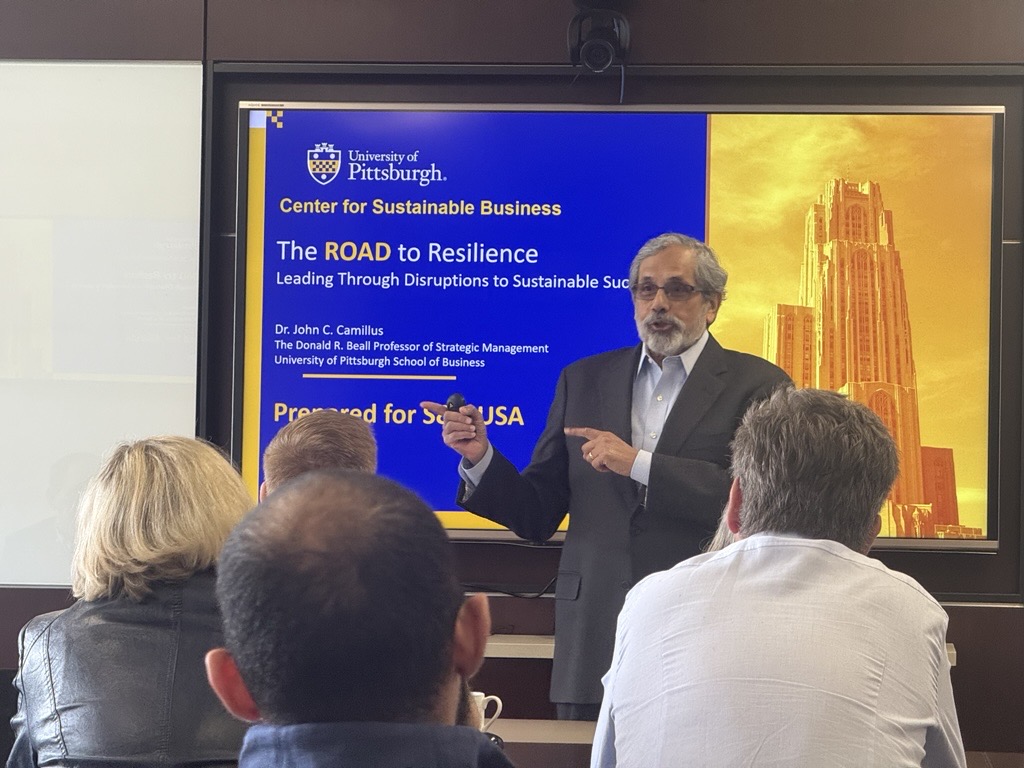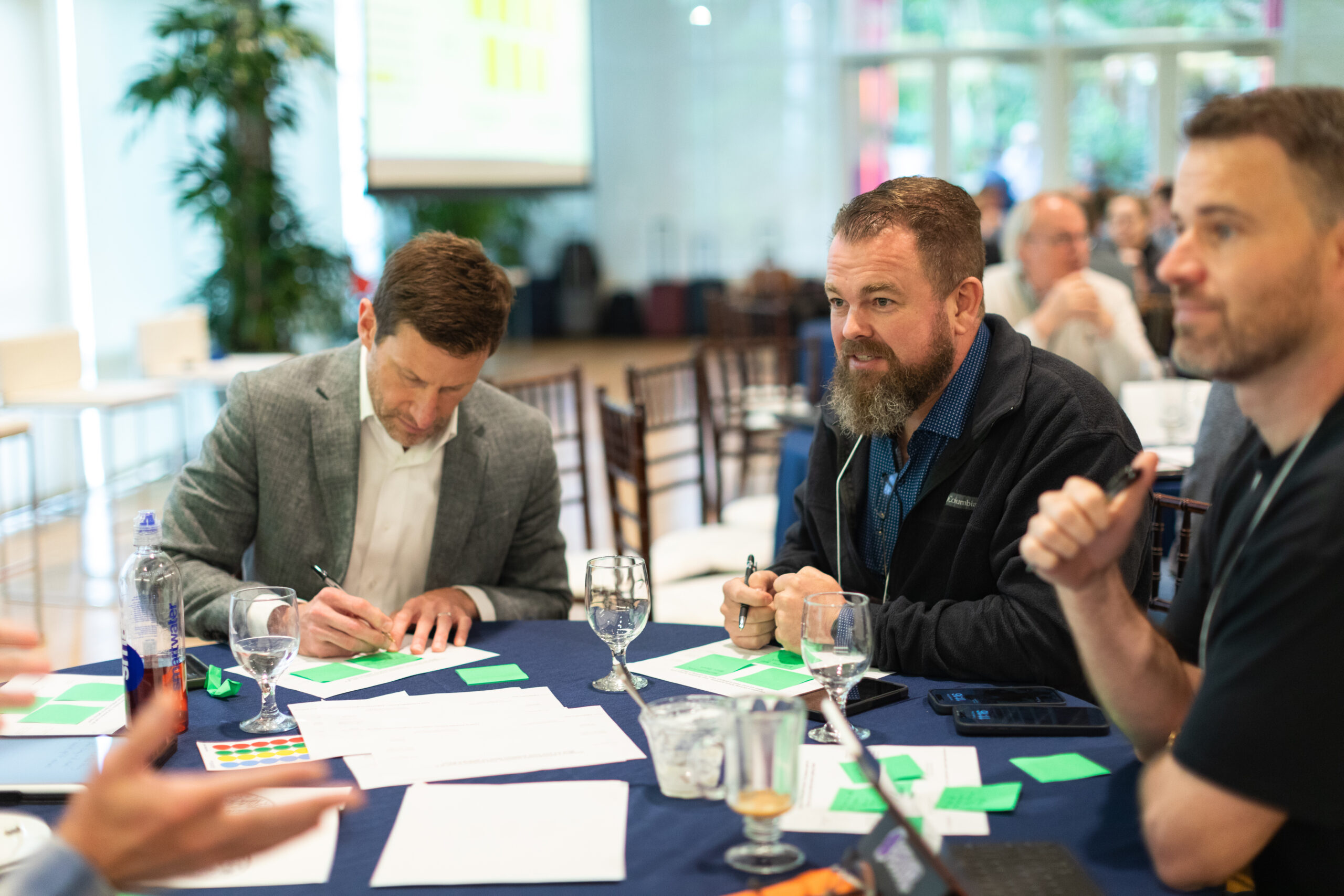

GREEN VOICE SUMMER SERIES
Resilience Amid Disruption: How the University of Pittsburgh’s Center for Sustainable Business is Helping Businesses Pivot
By Sarah Toulouse
 June 24, 2025
June 24, 2025
Disruption. It’s all around us – all the time.
In business, disruption can result in significant shifts that upend the status quo, causing industries to evolve rapidly or collapse entirely. Often driven by technology shifts, policy and regulation changes, or catastrophic crises, disruption has a way of exposing business models built on unsustainable supply chains, short-term profit at any cost, or performative commitments to social responsibility.
Yet, disruption doesn’t have to be disruptive. The University of Pittsburgh's Center for Sustainable Business (CSB) is helping businesses create what they call resilient value. Rather than switching between “profit mode” and “purpose mode,” the CSB is helping to build business models that create economic, social and environmental value simultaneously.
Chris Gassman
Executive Director, Center for Sustainable BusinessTrue resilience in business means more than bouncing back from adversity. At its core, resilience is the capacity to absorb shocks, anticipate and adapt to new realities, and emerge stronger. It’s not about being invincible. It’s about evolving ambidextrously.
The CSB offers a powerful blueprint for building this kind of resilience. Their suite of services can help companies find clarity in chaos and purpose in uncertainty. Core programs include:
Resilient Organizational Architecture Diagnostic (ROAD) Tool
Launched this year, this research backed, publicly available (read free) diagnostic framework is helping businesses benchmark their capabilities so they can identify gaps and strategic interventions in real time.
Executive Education and Workshops
Designed to immerse business leaders in sustainable business practices and master disruptions, the Resilience Strategies Executive Training (ReSET) program provides tailored education opportunities focused on ESG strategy, stakeholder engagement, and adaptive thinking. The CSB is also launching synchronous web-based workshops with leaders on applied topics to emergent issues like Energy Transitions. These aren’t just about learning – they are about immediate application. These programs integrate hands-on exercises and real-world problem-solving.
Resilience Strategies Labs
Faculty and graduate students lend expertise on everything from circular economy to go-to-market strategies to address unmet needs of underserved markets, helping sponsor companies rethink outdated practices. The collaborative research process helps all partners access academic tools, student talent, and multi-sector insights for strategic needs.
Convenings
Since its inception in October 2019, the CSB has cultivated partnerships with a diverse network of companies spanning industries such as energy, consumer goods, manufacturing, and technology. All companies that sponsor the CSB form the core of participants in the flagship gathering, the Sustainable Business Forum, that takes place twice a year and provides peer-to-peer learning on sustainable business best practices. The CSB has also launched a web-talks series that has already gathered record numbers of participants to learn from each other online via the School.

Dan Lampmann
Sustainability Partnerships Manager, Center for Sustainable BusinessGassman adds another key focus is alignment. “Does your organization have core values that are clearly articulated and well understood that guide decision-making?” he asks. “What we’ve seen is that organizations that have been more enduring in chaotic times have a much clearer North Star.”
Commonly, though, in many boardrooms, sustainability advocates find themselves constantly code-switching or modifying their language, data points, and priorities to appeal to leaders focused primarily on short-term financial metrics. CSB’s work emphasizes the importance of streamlined, honest conversations that bridge the gap between conventional business KPIs and the underlying organizational capabilities needed to address material issues that are eroding or creating commercial success in an unpredictable and unprecedented business environment.
At the heart of CSB’s philosophy, is this truth: authentic, resilient business models are inherently more adaptable. They are less vulnerable to supply chain shocks. They’re more attractive to talent and consumers who value transparency and integrity. They’re better prepared for regulation, market shifts, and wicked problems entangling global markets.

And perhaps most importantly, they are future-fit – designed to thrive not just in today’s markets, but in tomorrow’s world.
The University of Pittsburgh’s CSB is a rare blend of practice-oriented research and business ecosystem development. By guiding companies in forging viable business models, fostering student innovation, and mobilizing strategic collaborations, the CSB is a shining model of how universities and the business sector can unite to solve 21st century challenges and co-create resilient value.
To learn more, visit: Home | Center for Sustainable Business
Want to Become a Resilience Generalist?
The University of Pittsburgh’s Center for Sustainable Business is on a mission to make everyone a “Resilience Generalist.”
Every semester, students and professionals can register for a Micro-Credential in Sustainable Business. The series of courses guides participants on how companies manage their social (people), environmental (planet), and financial (profits) risks, obligations, and opportunities to positively impact both stakeholders and financial well-being. Those who have previously completed a Bachelor's degree or are otherwise able to enroll in graduate programs are eligible to apply.
The deadline to apply for Fall 2025 is August 1. If you have a team you’d like to enroll, contact the Center at CSB@Katz.Pitt.Edu.


Leave A Comment